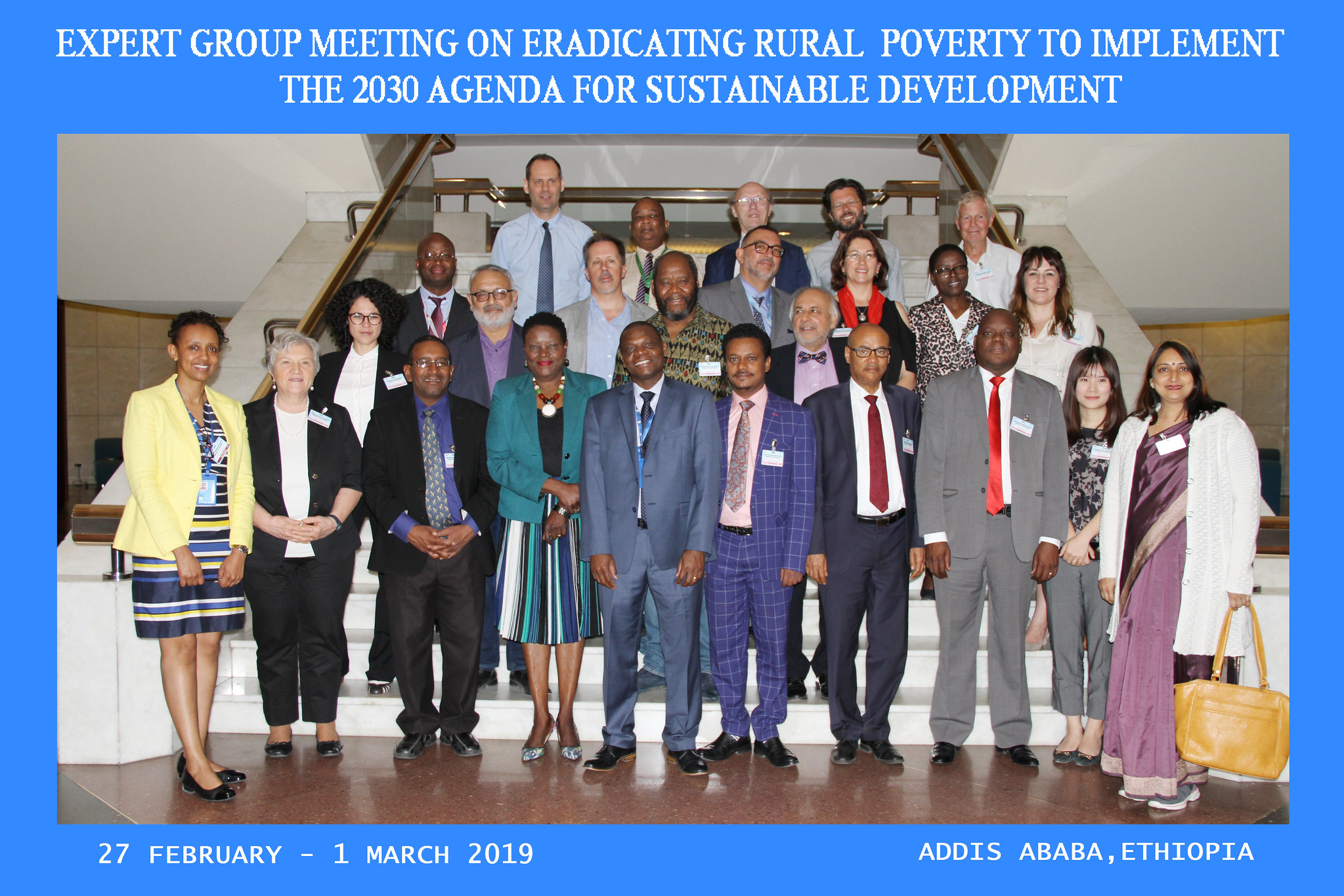
The 2030 Agenda for Sustainable Development promises to leave no-one behind and reaching the furthest behind first. Meeting this ambitious development agenda requires visionary policies for sustainable, inclusive, sustained and equitable economic growth, supported by full employment and decent work for all, social integration, declining inequality, rising productivity and a favorable international environment. In the 2030 Agenda, Goal 1 recognizes that ending poverty in all its forms everywhere is the greatest global challenge facing the world today and an indispensable requirement for sustainable development.
While remarkable progress has been made over the past decade in such areas as job creation, gender equality, education and health care, social protection measures, agriculture and rural development, and climate change adaptation and mitigation, the pace of progress has been insufficient and uneven to fully meet the Sustainable Development Goals and targets by 2030. Countries continue to face major challenges to the implementation of the 2030 Agenda despite strong economic growth. Key among them are unacceptably high levels of poverty, especially in rural areas; high and worsening inequality in many countries; unemployment; the uneven impact of new technologies; and the ongoing effects of climate change and natural disasters. In light of these concerns, the General Assembly, at its seventy-third session, adopted a new resolution entitled “Eradicating rural poverty to implement the 2030 Agenda for Sustainable Development” (A/RES/73/244). This resolution highlights the imperative to eradicate poverty in rural and remote areas to ensure that no one is left behind and reiterates the urgent need to accelerate the pace of rural poverty eradication.
The Assembly requested the Secretary-General to submit to the General Assembly at its seventy-fourth session a report on the status of the implementation of and follow-up to this resolution in order to identify the gaps and challenges faced in rural poverty eradication, especially in developing countries. In view of this, the Division for Inclusive Social Development (DISD) of the United Nations Department of Economic and Social Affairs is organizing an Expert Group Meeting on the “Eradicating rural poverty to implement the 2030 Agenda for Sustainable Development”. The meeting will be held in Addis Ababa, Ethiopia from 27 February to 1 March 2019.
Report of the Expert Group Meeting
Resolution adopted by the General Assembly on "Eradicating rural poverty to implement the 2030 Agenda for Sustainable Development English | Français | Español | Русский | عربي | 汉语
Papers
- Gaps and Challenges to mobilizing the private sector to fight rural poverty by Jimmy Lonsdale
- Reducing Vulnerability of the Rural Poor Through Adaptation and Mitigation by Grace Gondwe
- Challenges and gaps in assessing impacts of climate change on health in rural areas by Simon J Lloyd
- Overview: Rural Poverty in Developing Countries: Issues, Policies, and Challenges by David Suttie
- Implementation of effective rural policies and practices for poverty eradication: challenges and gaps faced by public-private partnerships by Kei Otsuki
- Climate Change, Natural Disaster and Rural Poverty in Ethiopia by Gutu Tesso
- Education and the Poverty Trap in Rural Areas by Ritu Chandra
- Addressing Spatial Poverty Traps by Kate Bird
- Reducing rural poverty in Vietnam: issues, policies, challenges by Ngo Ha Quyen
- Agrarian Change and Inclusive Rural Development: Gaps & Challenges by Ruerd Ruben & Gonne Beekman
- Rural Financial Inclusion & Poverty Eradication: Challenges and Gaps by Angela R. Hansen
- Rural poverty in Mexico: prevalence and challenges by Paloma Villagómez Ornelas
- Implementing nationally appropriate social protection systems and measures for all: gaps and challenges facing rural area by Andrew Mundalo Allieu
- Bridging the urban-rural digital divide and mobilizing technology for poverty eradication: challenges and gaps by Lester Henry
- Overview of income and non-income rural poverty in developed countries by Paola Bertolini
- Explaining the Persistence of Rural Poverty in South Africa by Andries du Toit
- The role of agriculture and rural development in achieving SDG 1.1 by FAO
Presentations
- Education and the Poverty Trap in Rural Areas by Ritu Chandra
- Presentation by Jimmy Lonsdale
- Overview of income and non-income rural poverty in developed countries by Paola Bertolini
- Climate change, Natural Disasters and Rural Poverty in Ethiopia by Gutu T Boka
- Rural poverty in Mexico: prevalence and challenges by Coneval
- Bridging the urban-rural digital divide and mobilizing technology for poverty eradication: challenges and gaps by Lester Henry
- Global Poverty Gaps and Policy by Moazam Mahmood
- Agrarian Change and Rural Development, Knowledge Gaps & Policy Challenges by Ruerd Ruben & Gonne Beekman
- Addressing Spatial Poverty Traps by Kate Bird
- Rural poverty and health services: challenges and gaps by Theadora Swift Koller
- Complexities and dynamics of rural poverty in Ethiopia: 1996- 2016 by Tassew Woldehanna
- Implementing nationally appropriate social protection systems and measures for all: gaps and challenges facing rural areas By Andrew M. Allieu
- Rural financial inclusion & poverty eradication: challenges and gaps by Angela R. Hansen
- Challenges and gaps in assessing impacts of climate change on health in rural areas by Simon Lloyd
- Reducing rural poverty in Vietnam by Ngo Ha Quyen
- Challenges and gaps faced by public-private partnerships by Kei Otsuki
- Key challenges in the promotion of decent rural employment for poverty eradication by Ken Chamuva Shawa
- Rural poverty in developing countries: issues, policies and challenges by David Suttie
- The role of agriculture and rural development in achieving SDG 1.1 by Benjamin Davis & Kafkas Caprazli
- Reducing rural poverty in developing countries: challenges and opportunities for microenterprises and public employment schemes-experience from India by Subhasish Dey
- Reducing poverty through employment in Africa by Saurabh Sinha
- Reducing Vulnerability of the rural poor through adaptation and mitigation by Grace Gondwe
- Identifying data gaps and challenges faced in rural poverty by Pali Lehohla
- Gender, poverty and social policy division ECA by Thokozile Ruzvidzo
Resources
 Welcome to the United Nations
Welcome to the United Nations